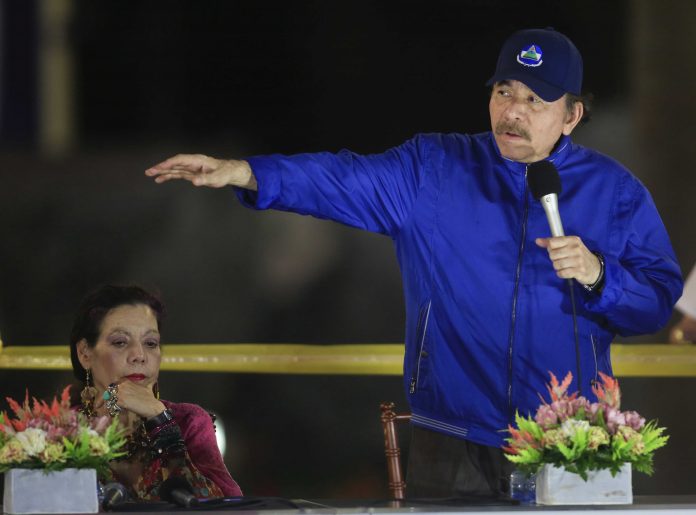
By CHRISTOPHER SHERMAN
Associated Press
MEXICO CITY (AP) — A senior U.S. official said Thursday that less than two week ago, Secretary of State Antony Blinken told Nicaragua’s foreign minister that the Biden administration would respect the results of free and fair elections in November.
But since then, the U.S. has seen Nicaraguan President Daniel Ortega “unleash a wave of repression against political opponents and members of Nicaragua’s civil society,” Julie Chung, the acting U.S. assistant secretary of state for Western Hemisphere affairs, told reporters.
A day earlier, the U.S. Treasury Department slapped sanctions on four people close to Ortega, including his daughter and a top army official. The sanctions followed the arrests of four potential opposition candidates for the presidency since last week.
Blinken was in Costa Rica on June 1 and 2 to meet with member countries of the Central America Integration System, and Chung said he talked with Nicaraguan Foreign Affairs Minister Denis Moncada.
“Secretary Blinken did speak to Foreign Minister Moncada and relayed that we want to see a free and fair elections,” Chung said. “The whole world would love to see free and fair elections in Nicaragua, and we would abide by the results of that if they were certified by an independent institution.”
Ortega, and his wife, Vice President Rosario Murillo, have been moving in the opposite direction ever since, apparently clearing the field of his strongest opponents.
“As we inch towards election in November in Nicaragua, I think it’s apparent Daniel Ortega and Rosario Murillo are fearful. They’re fearful of losing, they’re fearful of a free and fair, transparent system,” Chung said. “They are fearful of losing their grip on power.”
Murillo has struck a defiant tone this week, lashing out at foreign interference. She and Ortega have maintained that widespread anti-government protests in April 2019 were a coup attempt with foreign backing.
Chung said the efforts to push a change of course in Nicaragua are multilateral.
On Thursday, the European Parliament warned Ortega in a letter that future cooperation with the European Union will depend on the country moving back toward democracy.
“The November elections are an opportunity to end and peacefully resolve Nicaragua’s deep political crisis,” the letter said.
The EU similarly called for Ortega to change course Thursday. “The EU firmly condemns the actions of the Nicaraguan authorities against opposition parties, media, journalists and other media workers, human rights defenders and civil society, including the systematic detention and arrest of potential presidential candidates and opposition leaders,” the bloc said in a statement.
But later Thursday, Nicaragua’s Attorney General’s Office said in the statement that judges had granted its request to hold two of those candidates arrested this week for up to 90 days while their investigations continue. Opposition leaders Felix Maradiaga and Juan Sebastián Chamorro face charges related to alleged crimes against the government.
Chung said she spoke to Maradiaga’s wife the day before, who described how police beat her husband before carting him off to jail.



















